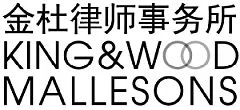- within Strategy, International Law and Employment and HR topic(s)
- in United States
- with readers working within the Media & Information and Retail & Leisure industries
An instant noodle manufacturer recently announced that it decided to increase prices for its "container instant noodle" (referring to both instant noodles packaged into a variety of "cup-like" or rectangular containers) from 1 April 2011. In China, this instant noodle manufacturer is considered one of the leading brands in relation to the instant noodle industry. According to press reports, the instant noodle manufacturer has announced that due to increased transportation and raw materials (e.g. flour and palm oil) costs, it intends to raise the prices for most of its container instant noodles to RMB 0.5 per unit – this amounts to an increase of between 10% to 15% from current prices. [Note: In the past month, several manufacturers of household and daily care products also made announcements that they were intending to increase prices of specified products due to an increase in price in raw materials. See our article entitled Price Hikes for Washing Powders, Soaps and Shampoos expected in April
The proposed price increase of container instant noodle, along with the proposed price hikes in relation to household and daily care products have caught the attention of both the National Development Reform Commission (NDRC) as well as local pricing authorities such as the Provincial Administration for Commodity Prices of Jiangsu (Jiangsu PACP). The NDRC is the authority in charge of governing and administering laws in relation to pricing of certain commodities as well as price-related breaches of the Anti-Monopoly Law (AML).
According to press reports, officials from the Jiangsu PACP have commented that the public announcement by the instant noodle manufacturer risks being construed as "coercing other enterprises to follow suit "(i.e. to increase prices of container instant noodle products), as the instant noodle manufacturer is considered an industry leader. There is also some indication that Jiangsu PACP officials have referred to this conduct as being a breach of the Price Law 1997 (PL). However, Jiangsu PACP did not mention expressly which PL provision the instant noodle manufacturer may be in breach of.
We think this is likely to be Article 14(3) of the PL. Article 14(3) of the PL prohibits business operators from engaging in "unfair price acts" by "fabricating and spreading news in relation to price hikes, bidding up prices, causing commodity prices to increase excessively." The broad objective of the PL is to stabilize the overall market price level in order to protect competition, consumer interests and to maintain the well-being of the socialist economic regime in China.
It is not clear in the text of Article 14(3) of the PL itself what constitutes "excessive" increase of prices. It is also unclear as to whether a mere "fabrication" or "spreading" of news in relation to price hikes would amount to a breach of Article 14(3); or whether this has to result in a price hike, or the business operator had intended to cause a price hike – in order for a breach to be established. In practice, such uncertainty gives the administration authorities a lot of leeway to exercise their own discretions.
The penalties in relation to the PL are set out in the Provisions on Administrative Punishment for Illegal Pricing Acts (effective from 1 February 2011). Specifically, a breach of Article 14(3) of the PL could result in the following penalties: corrective orders; confiscation of illegal income, imposition of a fine of less than 5 times the illegal income; if there is no illegal income – then a fine of up to RMB3 million (in case of a serious violation); and revocation of business license (in case of a serious violation) (see Article 6 of the regulation).
As outlined above, the Jiangsu PACP officials have expressed concerns that the instant noodle manufacturer's conduct of increasing the price of container instant noodles products may be a ploy to "coerce" other entities in the industry to follow suit. We note that there are no express provisions in the PL which prohibits "coercing" other entities to increase prices – even though arguably, Article 14(3) of the PL could potentially "catch" this behaviour, depending on how broad one's interpretation of Article 14(3) of the PL is.
Further, we note there are overseas precedents whereby conduct amounting to an "invitation to collude" has been considered to have breached antitrust or competition laws. But these are not straightforward cases. For instance, in the US, we understand that the US antitrust authority (the Federal Trade Commission (FTC)) brought proceedings against U-Haul (a large consumer rental truck company) for inviting its competitors to collude on rental prices (In the Matter of U-Haul International Inc and Amerco, Docket C-4294) (2010). Notably, U-Haul's top executive made public announcements which were articulated in such a way whereby competitors were invited to collude or raise prices. It is interesting to note that in the final Decision and Order issued by FTC, although U-Haul is prohibited from communicating with its primary competitors regarding its prices or rates, this prohibition does not apply to "transfer or dissemination of information through Web sites or other widely accessible methods of advertising, such as newspapers, televisions, or signage". It appears that FTC considered that something more than mere dissemination of information through mass media must be established, in order for a conduct to amount to an "invitation to collude". We note also that an invitation to collude is also not expressly prohibited by US antitrust laws; rather, in recent years, the FTC has made use of Section 5 of the Federal Trade Commission Act (which prohibits "unfair methods of competition" and "unfair or deceptive acts or practices" to catch such conduct.
According to press reports, NDRC has showed great concerns over these price increase attempts and has communicated with the relevant companies. The instant noodle manufacturer has declared suspension of its price increase plan "due to the stabilized raw material costs" and so as to be "in alignment with the State's policy for maintaining the stability of commodity prices". Some manufacturers of household and daily care products have also announced suspension of their price increase plan. It has also been reported that the NDRC has not found evidence of collusion in its investigation of these incidents.
Going forward, businesses should be cautious if they wish to
announce or disclose competitively sensitive information, such as
future prices or an intention to raise prices as this may be
construed as being a breach of provisions of the PL, including
Article 14(3), or even the AML, which prohibits a number of
behaviors, including price fixing and excessive pricing (as a form
of an abuse of dominance). Generally, competition concerns
for such disclosures are more likely to arise in a highly
concentrated market, or if the company intending to release such
information has considerable market power.
The content of this article is intended to provide a general guide to the subject matter. Specialist advice should be sought about your specific circumstances.



